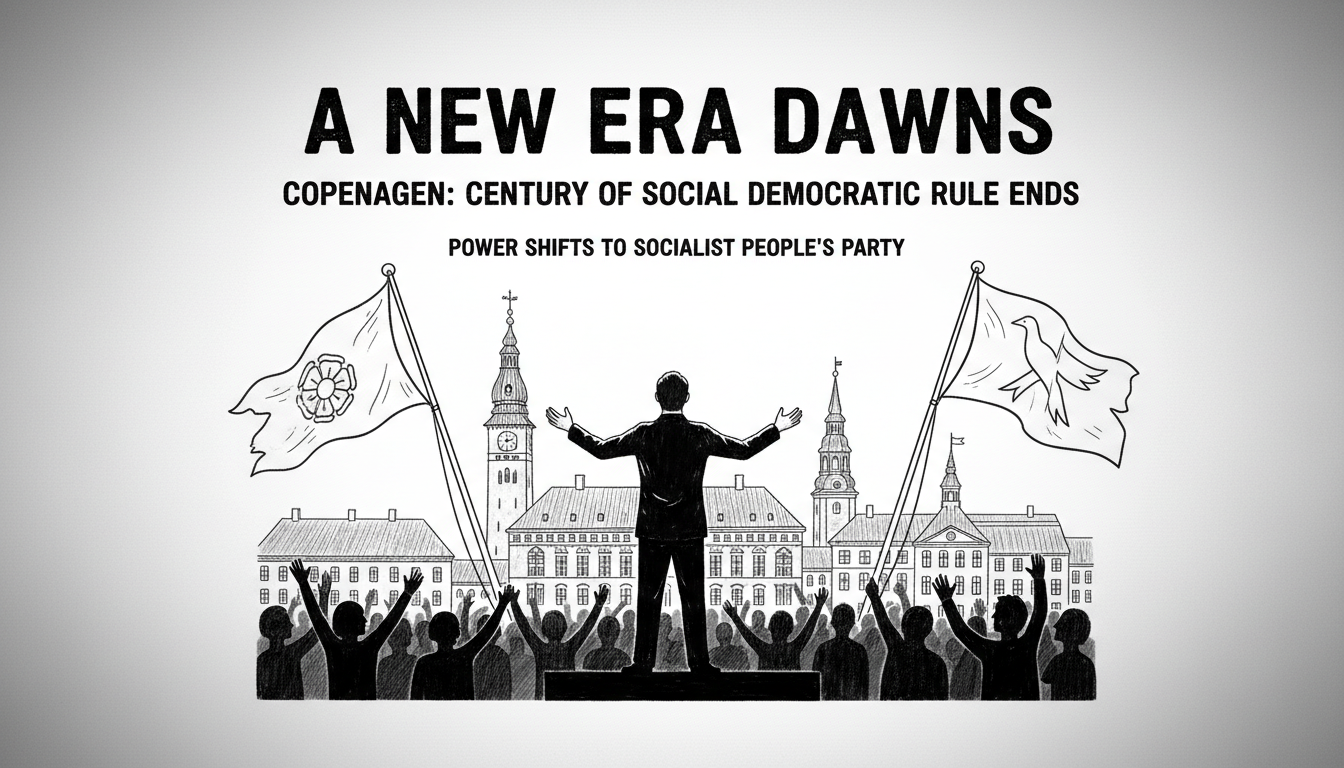Copenhagen's political landscape has shifted dramatically as the Socialist People's Party (SF) takes control of the city government. Sisse Marie Welling from SF becomes the new mayor, ending more than 100 years of Social Democratic leadership in the Danish capital. The change follows municipal elections that reshaped the city's political balance.
The incoming mayor addressed reporters at Copenhagen City Hall, emphasizing the significance of this transition. "I believe it's really healthy for this city that power isn't always given, and that new forces emerge," Welling stated during the announcement.
Social Democratic lead candidate Pernille Rosenkrantz-Theil acknowledged her party's defeat earlier in the day. "Now we lost Copenhagen. I think that's extremely unfortunate. But back on the horse again," she told press gathered at city hall. She revealed she never participated in the crucial negotiations that formed the new governing coalition.
The election results show a dramatic realignment of political power in Copenhagen. The Red-Green Alliance (Enhedslisten) becomes the largest party in Copenhagen Municipality for the second consecutive local election, securing 22.1 percent of votes despite a small decline. SF gained substantial ground with 17.9 percent, representing a 6.9 percentage point increase. The Social Democrats dropped to 12.7 percent, losing 4.5 percentage points compared to the previous election.
Political researcher Kasper Møller Hansen from the University of Copenhagen describes the Social Democrats' loss as "a colossal defeat." He emphasizes the symbolic importance of losing the mayor position in the capital city. "The party doesn't just lose a little bit, they have lost by lengths and couldn't even get through the door to negotiate," Hansen explains, referencing that Rosenkrantz-Theil reportedly negotiated for less than thirty minutes total.
The new governing coalition includes all parties except the Social Democrats and Frie Grønne. This broad alliance brings together the Red-Green Alliance, the Alternative, Venstre, the Conservatives, the Social Liberals, and the Danish People's Party behind Welling's leadership.
Hansen predicts the Social Democrats will likely rank fifth or sixth when distributing other mayoral positions in the capital. He suggests the party might end up with the culture and leisure portfolio, representing a dramatic downgrade from their former leadership position.
This local defeat carries national implications for Prime Minister Mette Frederiksen and the Social Democratic party. "She has already taken some of this on herself," Hansen notes. "She has to, because it can have consequences for the mood locally in the Social Democratic grassroots organization." With national elections approaching in just ten months, the party faces campaigning from an extremely weak position in the capital region.
The researcher draws a clear perspective on the broader impact: "The entire Social Democratic grassroots is normally such a strong organization, but now they've received an enormous setback where the party loses many, many mayoral positions."
While the Social Democrats maintained strength in other Danish cities like Aarhus, Odense, and Aalborg, the loss of Copenhagen represents a symbolic blow to the party's national standing. The capital city has traditionally served as a political stronghold and indicator of broader national trends.
This political shift in Copenhagen reflects changing urban voter preferences across Nordic capitals, where traditional center-left parties increasingly face challenges from both green-left alternatives and center-right options. The outcome suggests Copenhagen voters sought fresh approaches to urban challenges including housing, climate policy, and transportation.

